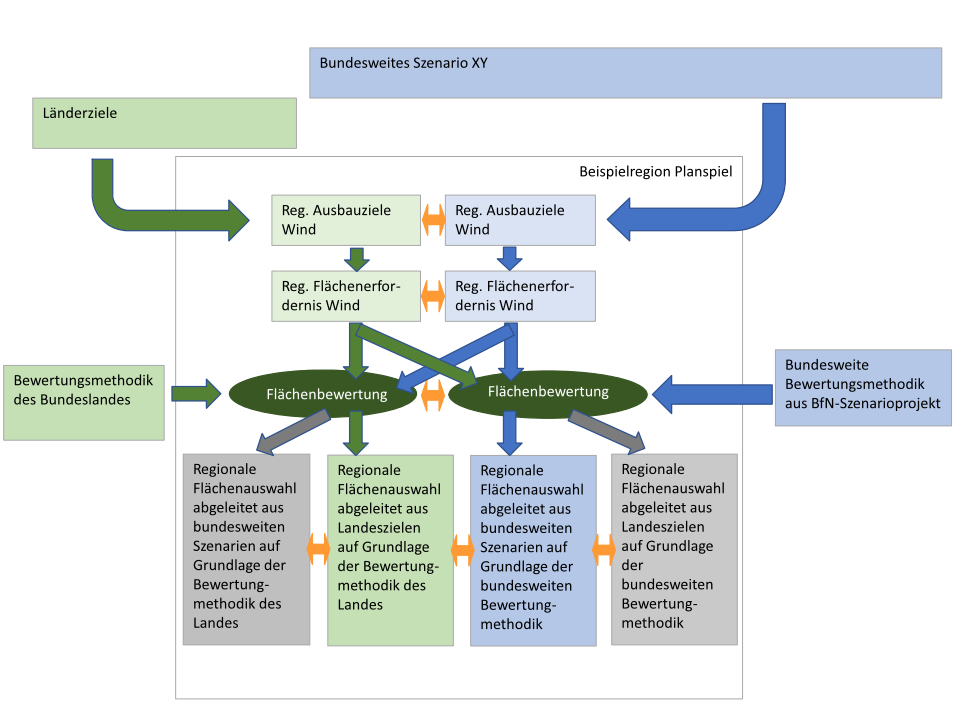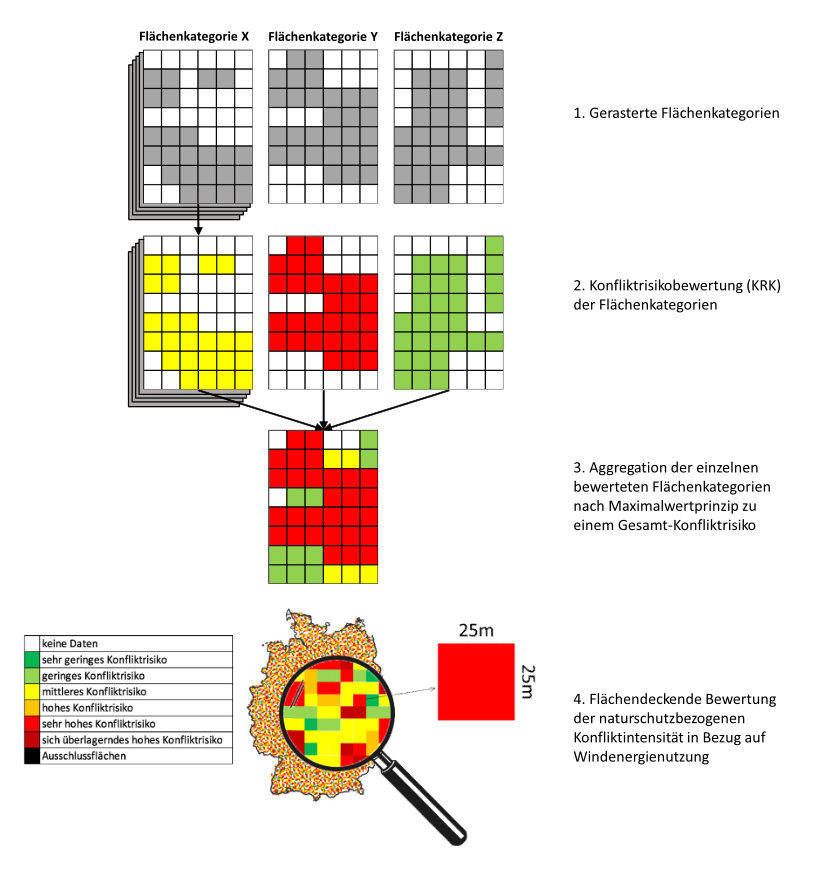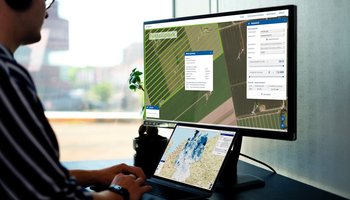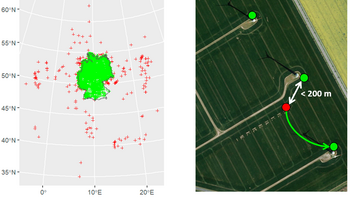The project will evaluate at the regional level the assessment methodology and results of the previous project "Expansion scenarios for renewable energies from a nature conservation viewpoint", in which a nationwide assessment of renewable energy expansion scenarios – especially onshore wind energy – from a nature conservation and landscape protection perspective was carried out. Based on two representative example regions, simulation games will be carried out with the local actors of regional planning, in which the results of the nationwide assessment will be compared with those of the regional assessment. This is intended to improve the reliability of the nationwide methodology so that nature conservation and landscape protection concerns can already be taken into account in strategic decisions at the federal level.
The project will evaluate at the regional level the assessment methodology and results of the previous project "Expansion scenarios for renewable energies from a nature conservation viewpoint", in which a nationwide assessment of renewable energy expansion scenarios – especially onshore wind energy – from a nature conservation and landscape protection perspective was carried out. Based on two representative example regions, simulation games will be carried out with the local actors of regional planning, in which the results of the nationwide assessment will be compared with those of the regional assessment. This is intended to improve the reliability of the nationwide methodology so that nature conservation and landscape protection concerns can already be taken into account in strategic decisions at the federal level.
For the spatial planning of wind energy use, it is of great importance to know which nature conservation-related conflicts can occur if a specific area is taken up for RE-purposes. Against this background, the project serves to further develop a methodology for assessing the spatial conflict intensity caused by the allocation of land for wind energy use, which can already be applied at the national strategic level when it comes to spatially allocating land quotas.
In the concluded precursor, the project "Expansion scenarios for renewable energies from a nature conservation viewpoint" (Project partner: IEE, B&P, THOWL), a methodology for evaluating renewable energy expansion scenarios from a nature conservation and landscape protection perspective, which can be applied on a nationwide scale, has already been developed and tested. This methodology is being further developed in the course of the current project and is being reviewed and honed through intensive comparison with assessment results from regional planning.
Within the framework of the above-mentioned project, it was shown that, at least for the planned expansion up to 2030 or 2035, there is certainly scope for optimising the choice of location from the point of view of nature conservation and landscape protection. In relation to the scenarios examined, this optimisation would lead to a considerable relief of nature and landscape. This result will now be evaluated by comparing it with the regional plans.

The current project offers the opportunity to evaluate the existing nationwide approach on the one hand by comparing it with the regional level and on the other hand to investigate which specific adaptations would enable them for land use assessments at the regional level. For this purpose, simulation games will be conducted with local actors in two example regions. The project can thus contribute to improving the consideration of nature conservation concerns at the strategic level, as well as to achieving a more efficient consideration of nature conservation concerns at the regional level of spatial management.
This leads to the following tasks for the project:

University of Applied Sciences and Arts TH OWL
Landscape Architecture and Environmental Planning
An der Wilhelmshöhe 44
D-37671 Höxter
Professor Dr. Boris Stemmer
boris.stemmer(at)th-owl.de
Bosch & Partner GmbH
Kantstr. 63a
D-10627 Berlin
Dr. Wolfgang Peters
w.peters(at)boschpartner.de
Öko-Institut e.V. – Büro Berlin
Schicklerstr. 5–7
D-10179 Berlin
Dr Felix Christian Matthes
f.matthes(at)oeko.de
Federal Agency for Nature Conservation (BfN)
FG II 4.3 Nature conservation and renewable energies
Alte Messe 6, D-04103 Leipzig
Dipl.-Ing. Sarah Böttner
Tel.: +49 341 30977-161
Sarah.Boettner(at)BfN.de
15.02.2023
Weiter

11.10.2022
Weiter

03.02.2022
Weiter
